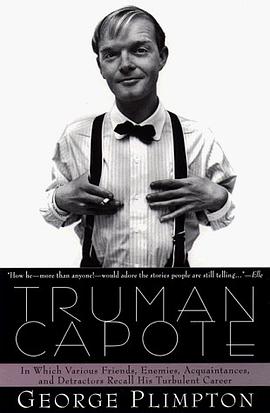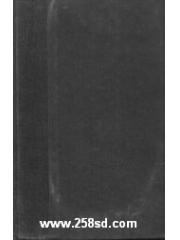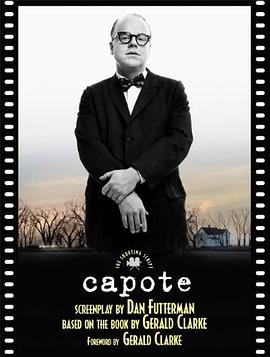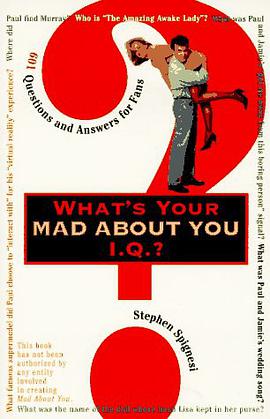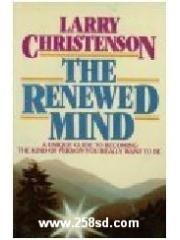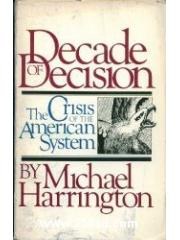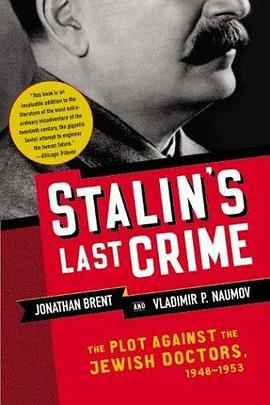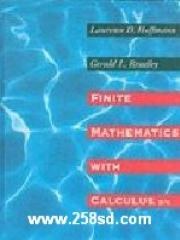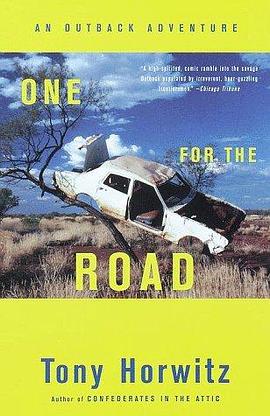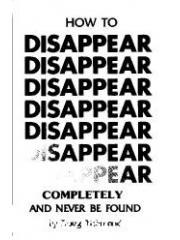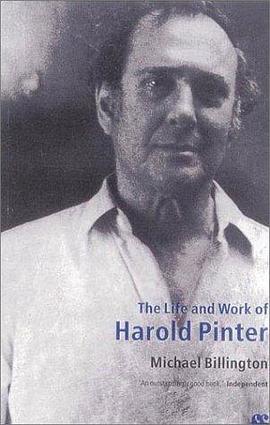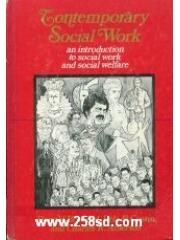
Introduction: Deleuze’s World
There are always dangers in writing a book with a specific audience in mind. The most obvious one is the danger of missing the target audience completely, either because the subject matter fails to grab its attention or because the style of presentation does not meet its standards or expectations. Then there is the associated danger of losing readers who, had not that particular target been chosen, would have formed the real audience of the book. A book may end up this way without any readership at all. In the world of Western philosophy, for example, history and geography have conspired to divide this world into two almost mutually exclusive camps, the Anglo-American and the Continental camps, each with its own style, research priorities and long traditions to defend. A philosophical book which refuses to take sides, attempting, for example, to present the work of a philosopher of one camp in the terms and style of the other, may end up being a book without an audience: too Anglo-American for the Continentals, and too Continental for the Anglo-Americans.
Such a danger is evident in a book like this, which attempts to present the work of the philosopher Gilles Deleuze to an audience of analytical philosophers of science, and of scientists interested in philosophical questions. When confronted with Deleuze’s original texts this audience is bound to be puzzled, and may even be repelled by the superficial similarity of these texts with books belonging to what has come to be known as the ‘post-modern’ tradition. Although as I argue in these pages Deleuze has absolutely nothing in common with that tradition, his experimental style is bound to create that impression. Another source of difficulty is the philosophical resources which Deleuze brings to his project. Despite the fact that authors like Spinoza and Leibniz, Nietzsche and Bergson, have much to offer to philosophy today, they are not generally perceived by scientists or analytical philosophers of science as a legitimate resource. For this reason what I
offer here is not a direct interpretation of Deleuze texts but a reconstruction of his philosophy, using entirely different theoretical resources and lines of argument. The point of this reconstruction is not just to make his ideas seem legitimate to my intended audience, but also to show that his conclusions do not depend on his particular choice of resources, or the particular lines of argument he uses, but that they are robust to changes in theoretical assumptions and strategies. Clearly, if the same conclusions can be reached from entirely different points of departure and following entirely different paths, the validity of those conclusions is thereby strengthened.
I must qualify this statement, however, because what I attempt here is far from a comprehensive reconstruction of all of Deleuze’s philosophical ideas. Instead, I focus on a particular yet fundamental aspect of his work: his ontology. A philosopher’s ontology is the set of entities he or she assumes to exist in reality, the types of entities he or she is committed to assert actually exist. Although in the history of philosophy there are a great variety of ontological commitments, we can very roughly classify these into three main groups. For some philosophers reality has no existence independently from the human mind that perceives it, so their ontology consists mostly of mental entities, whether these are thought as transcendent objects or, on the contrary, as linguistic representations or social conventions. Other philosophers grant to the objects of everyday experience a mind- independent existence, but remain unconvinced that theoretical entit- ies, whether unobservable relations such as physical causes, or unobservable entities such as electrons, possess such an ontological autonomy. Finally, there are philosophers who grant reality full autonomy from the human mind, disregarding the difference between the observable and the unobservable, and the anthropocentrism this distinction implies. These philosophers are said to have a realist ontol- ogy. Deleuze is such a realist philosopher, a fact that by itself should distinguish him from most post-modern philosophies which remain basically non-realist.
Realist philosophers, on the other hand, need not agree about the contents of this mind-independent reality. In particular, Deleuze rejects several of the entities taken for granted in ordinary forms of realism. To take the most obvious example, in some realist approaches the
world is thought to be composed of fully formed objects whose identity is guaranteed by their possession of an essence, a core set of properties that defines what these objects are. Deleuze is not a realist about essences, or any other transcendent entity, so in his philosophy something else is needed to explain what gives objects their identity and what preserves this identity through time. Briefly, this something else is dynamical processes. Some of these processes are material and energetic, some are not, but even the latter remain immanent to the world of matter and energy. Thus, Deleuze’s process ontology breaks with the essentialism that characterizes naive realism and, simul- taneously, removes one of the main objections which non-realists make against the postulation of an autonomous reality. The extent to which he indeed deprives non-realists from this easy way out depends, on the other hand, on the details of his account of how the entities that populate reality are produced without the need for anything transcend- ent. For this reason I will not be concerned in this reconstruction with the textual source of Deleuze’s ideas, nor with his style of argumenta- tion or his use of language. In short, I will not be concerned with Deleuze’s words only with Deleuze’s world.
The basic plan of the book is as follows. Chapter 1 introduces the formal ideas needed to think about the abstract (or rather virtual) structure of dynamical processes. I draw on the same mathematical resources as Deleuze (differential geometry, group theory) but, unlike him, I do not assume the reader is already familiar with these fields. Deleuze’s grasp of the technical details involved is, I hope to show, completely adequate (by analytical philosophy standards), but his discussion of technical details is so compressed, and assumes so much on the part of the reader, that it is bound to be misinterpreted. Chapter 1 is written as an alternative to his own presentation of the subject, guiding the reader step by step though the different math- ematical ideas involved (manifolds, transformation groups, vector fields) and giving examples of the application of these abstract ideas to the task of modelling concrete physical processes. Despite my efforts at unpacking as much as possible the contents of Deleuze’s highly compressed descriptions, however, the subject matter remains techni- cal and some readers may still find it hard to follow. I recommend that such readers skip this first chapter and, if need be, come back to
it once the point of the formal resources becomes clear in its applications to less abstract matters in the following chapters.
Chapters 2 and 3 deal with the production of the different entities that populate Deleuze’s world. The basic theme is that, within a realist perspective, one does not get rid of essences until one replaces them with something else. This is a burden which affects only the realist philosopher given that a non-realist can simply declare essences mental entities or reduce them to social conventions. One way to think about essentialism is as a theory of the genesis of form, that is, as a theory of morphogenesis, in which physical entities are viewed as more or less faithful realizations of ideal forms. The details of the process of realization are typically never given. Essences are thought to act as models, eternally maintaining their identity, while particular entities are conceived as mere copies of these models, resembling them with a higher or lower degree of perfection. Deleuze replaces the false genesis implied by these pre-existing forms which remain the same for all time, with a theory of morphogenesis based on the notion of the different. He conceives difference not negatively, as lack of resemblance, but positively or productively, as that which drives a dynamical process. The best examples are intensive differences, the differences in tempera- ture, pressure, speed, chemical concentration, which are key to the scientific explanation of the genesis of the form of inorganic crystals, or of the forms of organic plants and animals. Chapter 2 is concerned with the spatial aspects of this intensive genesis while Chapter 3 deals with its temporal aspects.
After reconstructing Deleuze’s ontology I move on in Chapter 4 to give a brief account of his epistemology. For any realist philosopher these two areas must be, in fact, intimately related. This may be most clearly seen in the case of naive realism, where truth is conceived as a relation of correspondence between, on one hand, a series of facts about the classes of entities populating reality and, on the other, a series of sentences expressing those facts. If one assumes that a class of entities is defined by the essence which its members share in common, it becomes relatively simple to conclude that these classes are basically given, and that they exhaust all there is to know about the world. The ontological assumption that the world is basically closed, that entirely novel classes of entities cannot emerge spontaneously, may now be coupled with the epistemological one, and the correspondence between true sentences and real facts can be made absolute. It is unclear to what extent any realist philosopher actually subscribes to this extremely naive view, but it is clear that a reconstruction of Deleuze’s realism must reject each one of these assumptions and replace them with different ones.
While in the first three chapters I attempt to eliminate the erroneous assumption of a closed world, in Chapter 4 I try to replace not only the idea of a simple correspondence but, beyond that, to devalue the very idea of truth. In other words, I will argue that even if one accepts that there are true sentences expressing real facts it can still be maintained that most of these factual sentences are trivial. The role of the thinker is not so much to utter truths or establish facts, but to distinguish among the large population of true facts those that are important and relevant from those that are not. Importance and relevance, not truth, are the key concepts in Deleuze’s epistemology, the task of realism being to ground these concepts preventing them from being reduced to subjective evaluations or social conventions. This point can be made clearer if we contrast Deleuze’s position not with the linguistic version of correspondence theory but with the mathematical one. In this case a relation of correspondence is postulated to exist between the states of a physical object and the solutions to mathematical models capturing the essence of that object. By contrast, Deleuze stresses the role of correctly posed problems, rather than their true solutions, a problem being well posed if it captures an objective distribution of the important and the unimportant, or more mathemat- ically, of the singular and the ordinary.
Chapter 4 explores this problematic epistemology and compares it with the more familiar axiomatic or theorematic versions which predominate in the physical sciences. To anticipate the main conclusion of the chapter, while in an axiomatic epistemology one stresses the role of general laws, in a problematic one laws as such disappear but without sacrificing the objectivity of physical knowledge, an objectivity now captured by distributions of the singular and the ordinary. If such a conclusion can indeed be made plausible, it follows that despite the fact that I reconstruct Deleuze to cater to an audience of scientists and analytical philosophers of science, nothing is yielded to the orthodox positions held by these two groups of thinkers. On the contrary, both physical science and analytical philosophy emerge transformed from this encounter with Deleuze, the former retaining its objectivity but losing the laws it holds so dear, the latter maintaining its rigour and clarity but losing its exclusive focus on facts and solutions. And more importantly, the world itself emerges transformed: the very idea that there can be a set of true sentences which give us the facts once and for all, an idea presupposing a closed and finished world, gives way to an open world full of divergent processes yielding novel and unex- pected entities, the kind of world that would not sit still long enough for us to take a snapshot of it and present it as the final truth.
To conclude this introduction I must say a few words concerning that other audience which my reconstruction may seem to overlook: Deleuzian philosophers, as well as thinkers and artists of different kinds who are interested in the philosophy of Deleuze. First of all, there is much more to Deleuze’s books than just an ontology of processes and an epistemology of problems. He made contributions to such diverse subjects as the nature of cinema, painting and literature, and he held very specific views on the nature and genesis of subjectivity and language. For better or for worse, these are the subjects that have captured the attention of most readers of Deleuze, so it will come as a surprise that I will have nothing to say about them. Nevertheless, if I manage to reconstruct Deleuze’s world these other subjects should be illuminated as well, at least indirectly: once we understand Deleuze’s world we will be in a better position to understand what could cinema, language or subjectivity be in that world.
On the other hand, if this reconstruction is to be faithful to Deleuze’s world it is clear that I must rely on an adequate interpreta- tion of his words. There is a certain violence which Deleuze’s texts must endure in order to be reconstructed for an audience they were not intended for, so whenever I break with his own way of presenting an idea I explain in detail the degree of rupture and the reason for it in a footnote. A different kind of violence is involved in wrenching his ideas from his collaboration with Fe ́lix Guattari. In this reconstruction I use Deleuze’s ontology and epistemology as exposed in his early texts, and use only those parts of his collaborative work which can be directly traced to those early texts. For this reason I always ascribe the source of those ideas to him, using the pronoun ‘he’ instead of ‘they’ even when quoting from their joint texts. Finally, there is the violence done to Deleuze’s fluid style, to the way he fights the premature solidification of a terminology by always keeping it in a state of flux. Fixing his terminology will seem to some akin to pinning down a live butterfly. As an antidote I offer an appendix where I relate the terms used in my reconstruction to all the different terminologies he uses in his own texts and in his collaborative work, setting his words free once again after they have served their purpose of giving us his world. The hope is that this world will retain all its openness and divergence, so that the intense expressivity and even madness so often attributed to Deleuze’s words may be seen as integral properties of the world itself.
具体描述
读后感
评分
评分
评分
评分
用户评价
清晰
评分清晰
评分清晰
评分清晰
评分清晰
相关图书
本站所有内容均为互联网搜索引擎提供的公开搜索信息,本站不存储任何数据与内容,任何内容与数据均与本站无关,如有需要请联系相关搜索引擎包括但不限于百度,google,bing,sogou 等
© 2025 qciss.net All Rights Reserved. 小哈图书下载中心 版权所有



